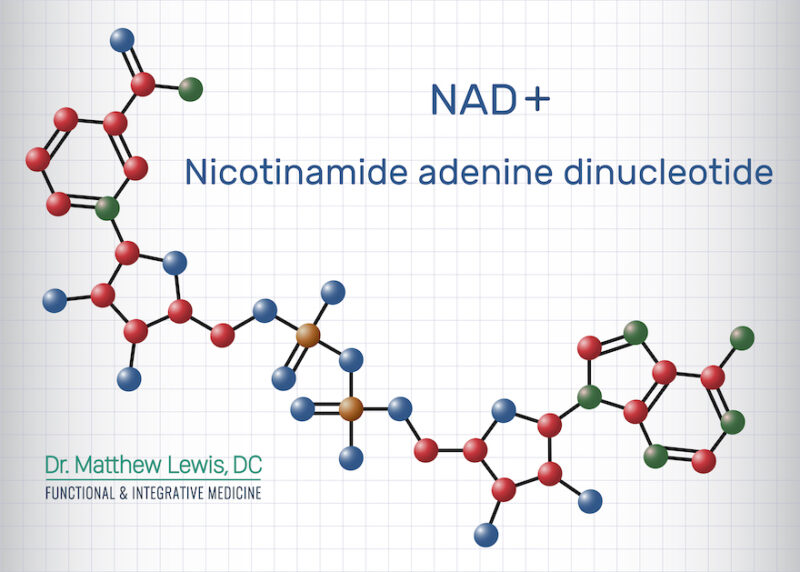Get Energized: Increase Your NAD+ Levels
As we age, it’s natural for us to feel less energetic. Age does that to people. It’s not that we’re running out of energy. After all, we fill our bellies several times a day with enough food to power us through the day. Problem is, as we age our bodies don’t burn that fuel as efficiently as they once did.
It’s similar to what happens with a car over time. The air filter gets dirty, fuel injectors get clogged, spark plugs wear out, carbon builds up on the pistons and cylinders, and suddenly a car that had great pickup and was getting 30 miles a gallon is sluggish and getting only about 20 mpg.
When it comes to our bodies, we have other factors working against us, including contaminants in our air, food, and water; stress; poor sleep; infections; chronic illnesses too numerous to mention; and even alcohol, caffeine, and medications. When we’re young, our bodies can compensate for this daily wear and tear. As we age, we become less resilient.

The mitochondria (the energy plants within cells) don’t produce energy as efficiently as they once did. The telomers, which keep the strands of our DNA from unraveling, become shorter. And the various systems of the body (i.e., digestive, respiratory, circulatory, and so on) function less efficiently.
To restore proper function, we need a tune-up, and one of the primary objectives of such a tune-up is to increase our Nicotinamide adenine dinucleotide (NAD+) levels.
What Is NAD+?
Nicotinamide adenine dinucleotide (NAD) is a chemical compound present in every cell of the body. It serves as an essential cofactor — a substance that enzymes rely on to perform various fundamental physiological processes. NAD+ is the oxidized version of the compound that’s more biologically available in the body.
Numerous scientific reviews and peer reviewed studies have associated low levels of NAD+ with aging and chronic disease. Scientific evidence now demonstrates that a decline in cellular nicotinamide adenine dinucleotide (NAD+) is a feature of aging and may play a role in the process. In other words, low NAD+ isn’t merely a symptom of aging; it actually causes aging.
Low NAD+ has been linked to numerous age-related diseases, including: Continue reading…


